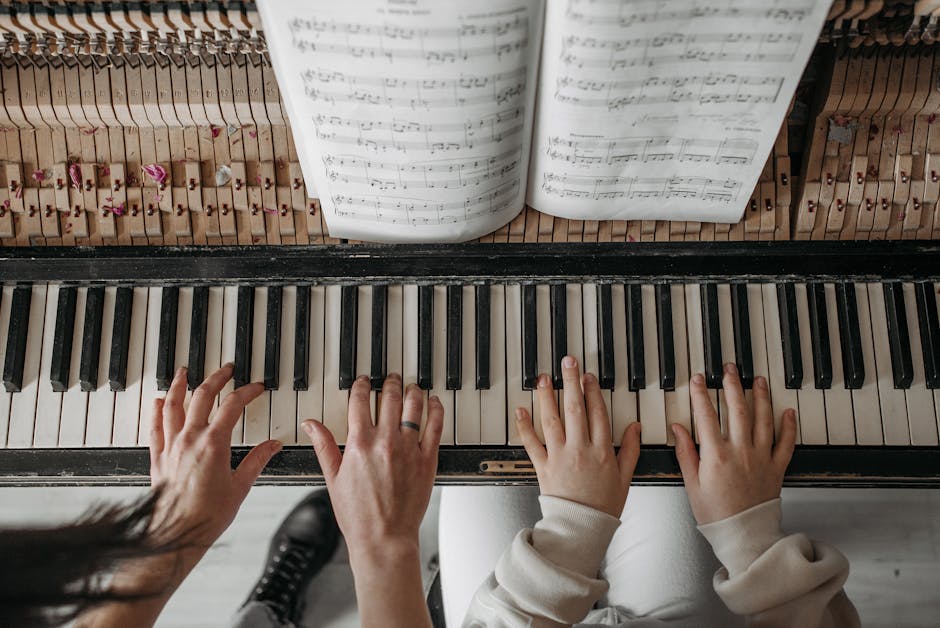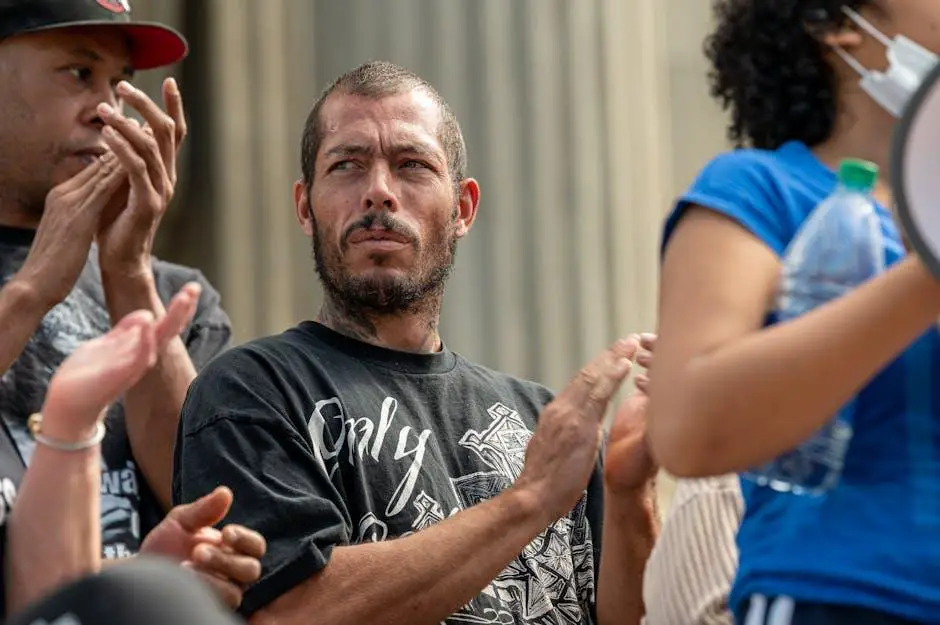Have you ever listened to a minor chord and felt like it just gets you on a spiritual level? Like, seriously, it’s like that chord knows all your deep, dark secrets and is calling you out on them. Well, get ready to dive deep into the emotional rabbit hole of minor chords, because we’re about to unveil the hidden depths of these sneaky little musical notes. Buckle up, folks, it’s about to get emo up in here.
Contents
- 1 The Emotional Resonance of Minor Chords in Music History
- 2 Understanding the Psychological Impact of Minor Chords
- 3 Comparing Major and Minor Chords: A Study in Sonic Contrast
- 4 The Role of Minor Chords in Evoking Sadness and Nostalgia
- 5 Minor Chords in Popular Music: Beyond Sorrow
- 6 Exploring the Versatility of Minor Chords in Various Musical Genres
- 7 The Science Behind Why Minor Chords Stir Our Emotions
- 8 FAQs
- 9 So Long, Farewell!
The Emotional Resonance of Minor Chords in Music History
Minor chords in music history have always held a special place in our hearts, striking a chord (pun intended) with our emotions in ways that major chords simply can’t. They have a way of tugging at our heartstrings and making us feel all the feels, from poignant sadness to bittersweet nostalgia.
Throughout the centuries, minor chords have been used by composers to convey a wide range of emotions, from melancholy and longing to mystery and tension. They add depth and complexity to music, creating a sense of tension and drama that keeps listeners on the edge of their seats.
Whether it’s the haunting melodies of a Chopin nocturne or the eerie dissonance of a Mahler symphony, minor chords have the power to transport us to another world and make us feel things we never knew we could feel. They evoke a sense of emotional depth and complexity that resonates with us on a subconscious level, leaving us feeling both moved and inspired.
So the next time you hear a minor chord in a piece of music, take a moment to really listen to how it makes you feel. Allow yourself to be swept away by the emotional resonance of those haunting notes, and let them transport you to a place of beauty and wonder.

Understanding the Psychological Impact of Minor Chords
Minor chords may have a bad rep in the music world, but they actually have a lot more to offer than just melancholy tunes. Let’s dive into the psychological impact of these misunderstood chords.
First of all, minor chords have a way of tugging at our heartstrings and invoking a sense of nostalgia. They can make us feel a whole range of emotions, from sadness and longing to hope and contemplation. It’s like they have the power to transport us to a different time and place with just a few notes.
Another interesting thing about minor chords is that they can create tension and suspense in music. They have a mysterious quality that keeps listeners on the edge of their seats, waiting to see how the story will unfold. It’s like watching a suspenseful movie – you never know what’s going to happen next.
So next time you hear a minor chord, don’t just dismiss it as sad or gloomy. Embrace its complexity and let it take you on a musical journey filled with emotion and intrigue. Who knows, you might just discover a newfound appreciation for these underrated chords!
Comparing Major and Minor Chords: A Study in Sonic Contrast
Major and minor chords are like the yin and yang of the music world - one light and cheery, the other dark and brooding. Let’s dive deeper into the sonic contrast between these two types of chords.
When you hear a major chord, it’s like a warm hug on a cold winter day. It’s bright, happy, and full of energy. Think of your favorite pop song that makes you want to dance around the room – chances are, it’s filled with major chords. On the other hand, minor chords are like the emo kid in the corner of the room. They’re moody, melancholic, and introspective. If major chords are a sunny day at the beach, minor chords are a rainy day spent moping indoors.
But the real magic happens when you start comparing major and minor chords side by side. It’s like watching a superhero showdown between Captain Optimism and Doctor Doom. Major chords are all about stability and resolution, creating a sense of completeness and happiness. Minor chords, on the other hand, introduce a sense of tension and longing, leaving you hanging on the edge of your seat.
So next time you’re jamming out on your guitar or piano, take a moment to appreciate the contrast between major and minor chords. It’s like a musical tug-of-war between light and darkness, joy and sorrow. Embrace the sonic diversity and let your ears revel in the delightful discord of major and minor chords.

The Role of Minor Chords in Evoking Sadness and Nostalgia
Let’s talk about those little troublemakers in the music world – minor chords. These sneaky little notes have a way of tugging at our heartstrings, evoking emotions of sadness and nostalgia that can make even the happiest song sound like a tear-jerker.
When a musician decides to throw a minor chord into the mix, it’s like they’re saying, “Hey, let’s dial up the feels on this one!” Minor chords create a sense of longing and melancholy that can transport us back to a simpler time (cue the nostalgic memories of awkward middle school dances).
But don’t underestimate the power of those minor chords - they’re like the underdogs of the music world, adding depth and complexity to a song that might otherwise fall flat. Without them, our playlists would be filled with nothing but bubblegum pop and cheesy love ballads – and who wants that?
So next time you find yourself getting lost in a sad, nostalgic song, take a moment to appreciate the role of those minor chords. They may be small in size, but they sure know how to pack a punch when it comes to stirring up those emotions.

Minor Chords in Popular Music: Beyond Sorrow
Minor chords are usually associated with feelings of sadness, melancholy, and heartbreak. But in the world of popular music, they can be used in a variety of creative ways to convey different emotions. Sure, they may bring a tear to your eye, but they can also make you want to dance, rebel, or even laugh!
Take for example the classic minor chord progression in “Purple Haze” by Jimi Hendrix. This iconic song uses minor chords to create a sense of mystique and otherworldly atmosphere. It’s not just about sorrow, it’s about breaking free from the norm and entering a psychedelic trance!
Or how about the use of minor chords in Adele’s hit song “Rolling in the Deep”? The haunting melody combined with the minor chords creates a sense of empowerment and strength. It’s a breakup anthem that makes you want to belt out the lyrics and dance like nobody’s watching!
So next time you hear a minor chord in a popular song, don’t just assume it’s about sorrow. It could be about rebellion, empowerment, or even just having a good time. Because in the world of music, minor chords can take you beyond sorrow and into a whole new realm of emotions and experiences!
Exploring the Versatility of Minor Chords in Various Musical Genres
Minor chords might be small in name, but they sure do pack a punch in the music world! These versatile little notes are like the chameleons of the musical scale, seamlessly blending into various genres and creating unique sounds that evoke a myriad of emotions. Let’s take a closer look at how minor chords shine in different musical styles:
In classical music, minor chords are often used to add a touch of drama and intensity to compositions. They can create a sense of melancholy or unease, making listeners sit up and pay attention. From Chopin’s haunting nocturnes to Beethoven’s brooding sonatas, minor chords are the secret weapon of classical composers looking to tug at our heartstrings.
But don’t count minor chords out in jazz music - they have a flair for adding a touch of sophistication and elegance to improvisations. Jazz musicians love to play around with minor chords, using them to create tension and build up to those show-stopping solos. Whether it’s a smoky ballad or a lively swing number, minor chords are the unsung heroes of the jazz world.
And let’s not forget about rock music, where minor chords are the bread and butter of many iconic songs. From the brooding power ballads of the ’80s to the angst-ridden anthems of the grunge era, minor chords bring a sense of raw emotion and authenticity to rock music. Whether it’s a crunchy power chord or a soulful arpeggio, minor chords are the backbone of rock compositions that make us want to crank up the volume and let loose!
The Science Behind Why Minor Chords Stir Our Emotions
Ever wonder why minor chords just hit you right in the feels? Well, it turns out there’s some science behind it that might just blow your mind. Minor chords have a way of tugging at our heartstrings and stirring up all sorts of emotions, from melancholy to outright despair.
So, what exactly is it about minor chords that gets us all sappy and sentimental? It all comes down to the way our brains process sound. When we hear a minor chord, our brains recognize it as dissonant and unresolved, which triggers a whole host of emotional responses. It’s like our brains are saying, ”Hey, something just ain’t right here.”
But it’s not just about the dissonance. Minor chords also have a way of evoking a sense of longing and nostalgia, like a sad, old country song that just won’t quit. They tap into a deep well of human experience and emotion, connecting us to something greater than ourselves.
So the next time you find yourself getting all misty-eyed over a hauntingly beautiful minor chord progression, just remember: it’s not just in your head. There’s some serious science behind those tears that are streaming down your face. And hey, isn’t it nice to know that even in the depths of despair, you’re not alone?
FAQs
What exactly are minor chords and how do they differ from major chords?
Imagine major chords as the popular extroverted kids at school who are always upbeat and cheerful, while minor chords are their brooding, introspective counterparts who prefer hanging out in dimly lit corners.
Why do minor chords evoke such strong emotions in listeners?
Minor chords are like the emo poets of the music world, tapping into our deepest emotions and stirring up feelings of sadness, longing, and melancholy. They have a way of tugging at our heartstrings and making us reach for a box of tissues.
Can minor chords actually make us feel better, despite their somber tones?
Surprisingly, yes! Just like a good cry can be cathartic, listening to minor chords can help us release pent-up emotions and feel a sense of relief. It’s like giving your soul a much-needed emotional detox.
Are there any famous songs that use minor chords to convey powerful emotions?
Absolutely! Just think of Adele’s “Someone Like You” or Leonard Cohen’s “Hallelujah.” These songs use minor chords to create a sense of vulnerability and raw emotion that resonates deeply with listeners. Minor chords are like the secret ingredient that turns a good song into a timeless classic.
So Long, Farewell!
Dear readers, we hope you have enjoyed this musical journey through the emotional depths of minor chords. From the melancholy depths of A minor to the haunting whispers of E minor, we have explored the complex range of feelings that these chords can evoke.
As you navigate the symphony of life, remember to embrace the minor chords along with the major ones. After all, it’s the bittersweet notes that add depth and richness to the melody of life.
So next time you hear a minor chord, don’t cry – just nod knowingly and say, “Ah, yes, the emotional depths of a minor chord.”
Until next time, keep on exploring the magical world of music!



